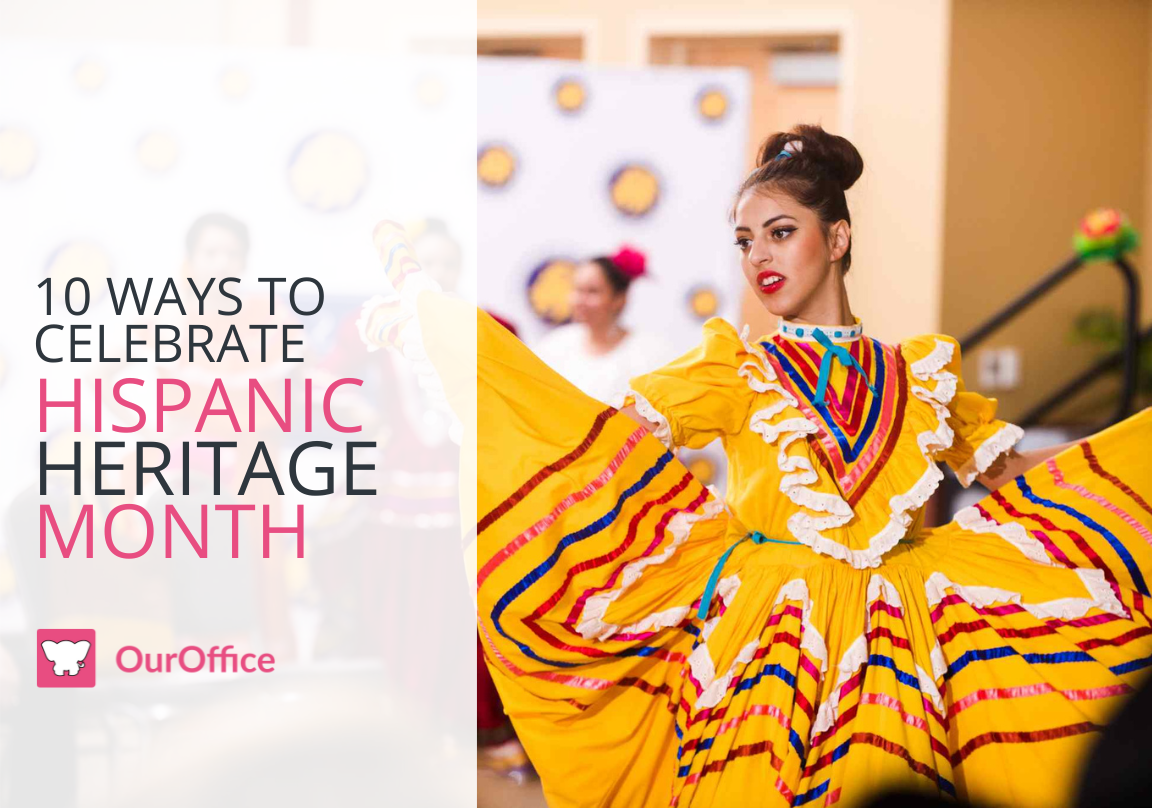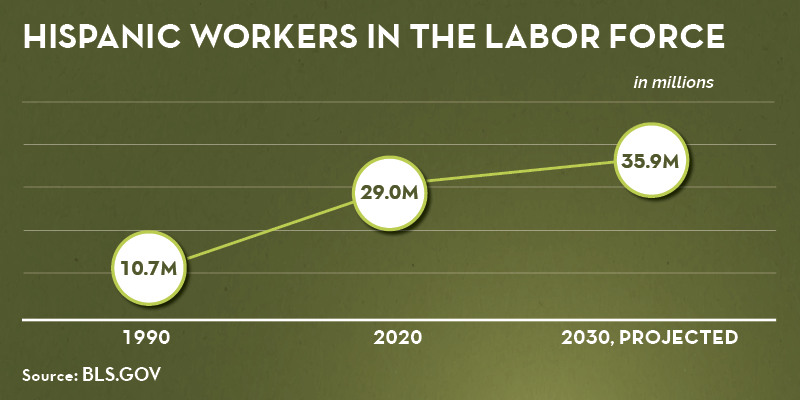26 Sep 10 Ways to Celebrate Hispanic Heritage Month

National Hispanic Heritage Month is celebrated every year from September 15 to October 15 in the United States. It is an important reminder of how much strength the U.S. draws as a nation from the contributions of those who came from Spain, Central and South America and the Caribbean. It is also a time to reflect on how much the Hispanic/Latino community and heritage have influenced and contributed to American life and culture.
History of the Hispanic Heritage Month
Here is a timeline of events showing how Hispanic Heritage Month came to be:
● Congressman George Brown first introduced the idea of Hispanic Heritage Month in June 1968. Multicultural groups were growing and this awareness gained traction during the civil rights movement. It seemed appropriate to recognize the contributions of the Latino community.
● On September 17, 1968, President Lyndon Johnson implemented the observance as the Hispanic Heritage Week.
● In 1987, Representative Esteban Torres of California submitted a bill to expand the Hispanic Heritage Week to the Hispanic Heritage Month.
● Although Torres’s bill died in Committee, Senator Paul Simon of Illinois submitted a similar bill later. The Senate bill passed Congress and President Ronald Reagan signed it into law on August 17, 1988.
Hispanics as a Driver of Workforce Growth in the U.S.
The number of Hispanic workers in the American workforce will grow from 29.0 million in 2020 to a projected 35.9 million in 2030, at which time the U.S. Bureau of Labor Statistics estimates Hispanics will account for 1 out of every 5 workers.
While Hispanics remain overrepresented in service occupations, they now also make up 10.7% of workers in management jobs, up from 5.2% in 2000. Meanwhile, Hispanics are projected to account for 78% of net new workers between 2020 and 2030.
According to the U.S. Small Business Administration, there are about 4 million Hispanic-owned businesses in the U.S. The number of Hispanic business owners has grown 34% in the last 10 years nationwide.

Despite being disproportionately impacted by the pandemic, Hispanic workers have led the economic recovery by returning to work before their non-Hispanic counterparts. However, Latino population in the U.S. workforce continues to be concentrated in lower-wage jobs.
According to a McKinsey & Company report on the economic state of Latinos in America both American and foreign-born Latinos remain far from equal with non-Latino/White Americans. Latino Americans make just 73 cents for every dollar earned by White Americans.
There’s no doubt Hispanics/Latinos are getting more integrated into the U.S. economy. Yet, there’s a lot of work to be done, especially for the first-generation Latino immigrants. Addressing the barriers that prevent Latinos from fully participating in our economy is not only the right thing to do, but a good strategic move as well. Hispanics/Latinos are vital for the U.S. economic growth – it benefits everyone.
10 Ways to Elevate, Promote and Recognize Hispanics/Latinos
Employers can help increase cultural competence and awareness around Hispanics/Latinos issues and concerns. Leaders can evaluate systems to remove bias and encourage equitable efforts to attract and retain the best Latino talent and provide the development opportunities and support necessary for this group to grow both personally and professionally.
Hispanic Heritage Month can be an excellent time to assess and improve your organization’s DEI efforts. When assessing your plans for this month, it’s best to focus on ways to promote equity, inclusion, professional development and cultural recognition not only during Hispanic Heritage Month, but all year around.
Leaders are encouraged to help elevate Hispanic/Latino professionals by providing them greater visibility and supporting their leadership development opportunities. Employers can have more impact by being intentional about changing the narrative and raising awareness. These celebratory events need to be part of a long-term sustainable strategy which translate into updated policies and effective initiatives to help move the needle for Hispanics/Latinos so that they can contribute more to the long-term success of the economy as a whole.
Here are some educational and effective ways for employers to support Hispanic/Latino employees and communities this month and throughout the year:

1. Incorporate diversity, equity, and inclusion principles to improve hiring, retention and training practices. This can help increase Hispanic representation throughout the organization. Specifically, focus on the senior executive roles.
2. To maximize the effects of your recruitment, retention and development efforts, partner with organizations that focus and empower Hispanic/Latino talent.
3. Celebrate Hispanic and Latino DEI achievements at a town hall meeting. Share how the company has made progress on programs related to these employee populations — for example, building Hispanic/Latino recruitment pipelines, identifying and closing pay gaps for Latina women or fostering their inclusion. It is also a great opportunity to discuss updates and next steps, or commit to specific goal(s) for the first time.
4. Spotlight and praise your Hispanic/Latino employees on LinkedIn and/or company website with a professional video or article highlighting their achievements and their career journeys. This is a great way to inspire professionals.
5. Schedule several Allyship workshops during the month, with focus on defining privilege, and ways in which allies can help identify microaggressions and unconscious bias.
6. Partner with and sponsor a non-profit organization committed to civil rights and social justice and bringing down systemic barriers that Hispanics/Latinos face every day.
7. Support Hispanic-owned businesses, suppliers, manufacturers or vendors. Include their products and services at corporate events. Provide care packages to employees with gifts from these businesses.
8. Create a cookbook of traditional Hispanic and Latino recipes contributed by employees. Gift one to all employees. Consider hosting a culturally inspired cooking class. For a health-oriented approach, consider hosting a cooking class with a nutritionist or health coach.
9. Host virtual lunch and learn sessions to educate coworkers on key cultural topics. Make it more fun with a trivia event. Ask employees to share their favorite movies, books, poetry, music, and recipes that are related to the Hispanic culture, history and contributions.
10. Create a college scholarship program for the children of frontline workers.
The Bottomline
The Hispanic/Latino community is a growing and critical population in the U.S. labor market. A better understanding of this community’s makeup is essential when discussing the experiences of its members, particularly in regard to the economy and job market.
It is critical to be intentional and to use data to tell the story in order to make good progress. You need to be deliberate and act expeditiously to ensure that Hispanic/Latino job seekers have access to opportunities for career advancement and remove the barriers that do not allow them to succeed. This is truly the best way to celebrate and honor this group.




